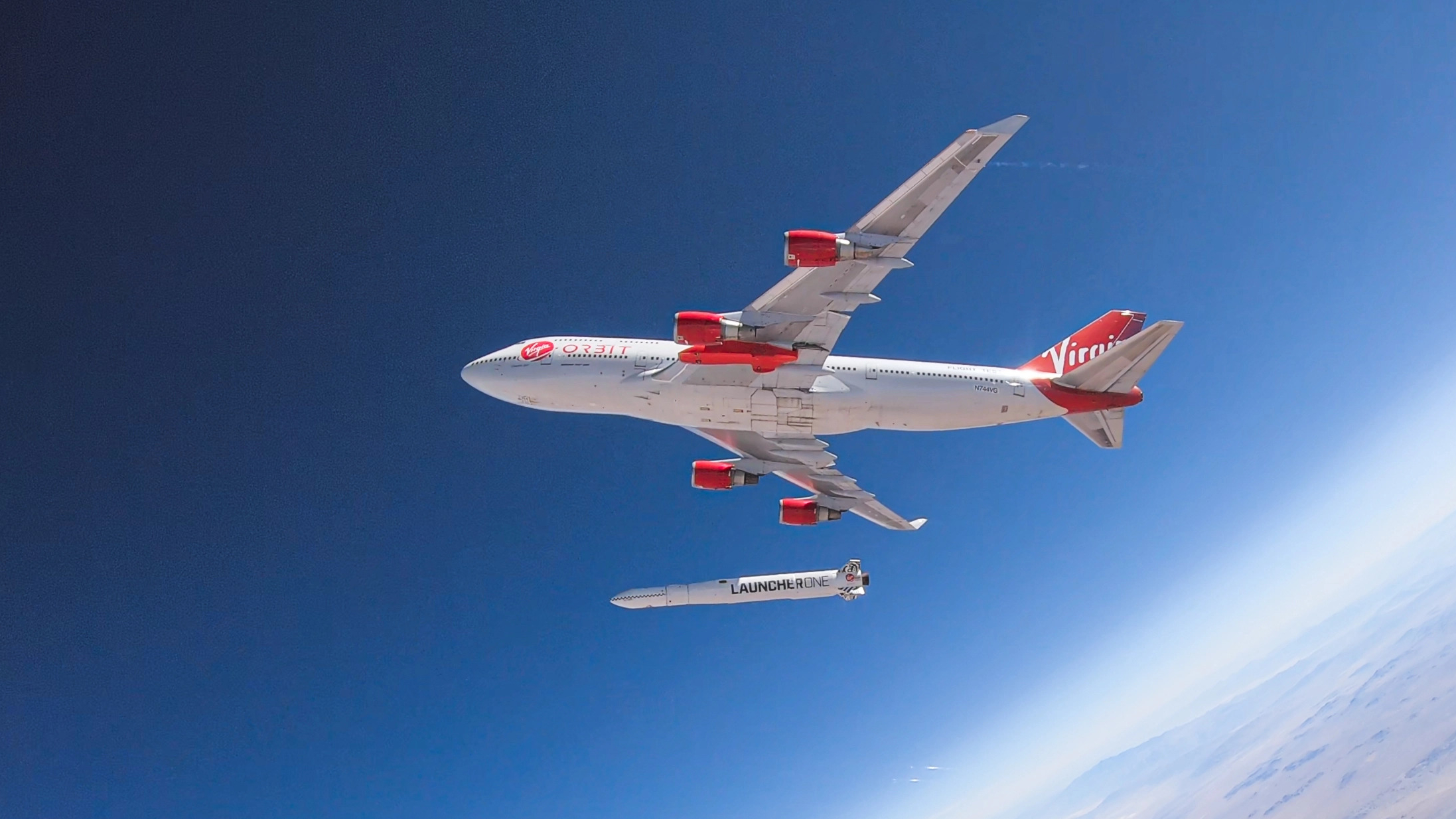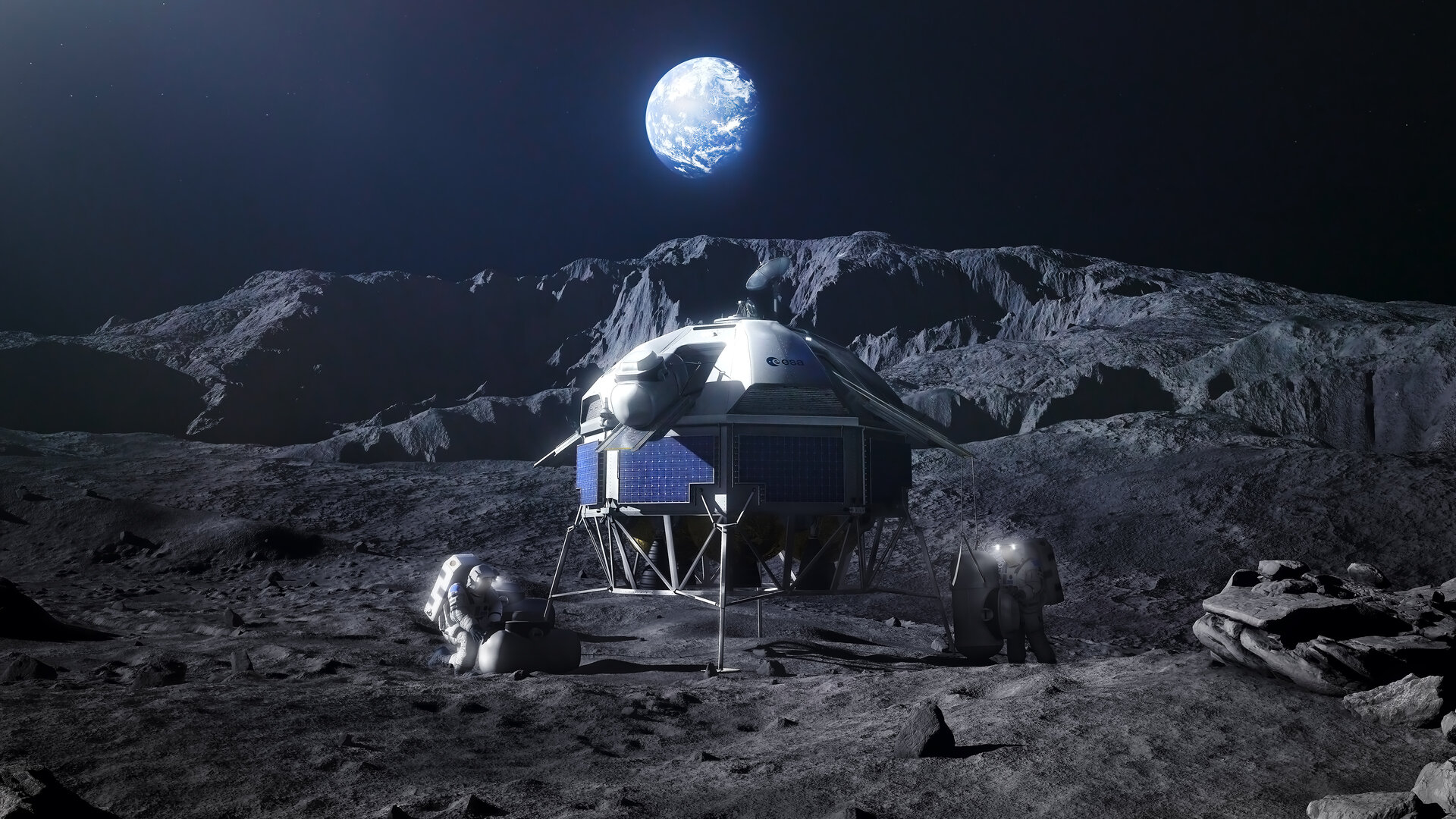Virgin Orbit's failed debut UK rocket launch traced to '$100 part:' report
Virgin Orbit's debut Cornwall orbital launch ended in failure Jan. 9, and early stages of the investigation point to an inexpensive part in rocket LauncherOne.

Virgin Orbit is within reach of figuring out what went wrong on its first U.K. mission.
The debut Cornwall orbital launch of Virgin Orbit, called "Start Me Up" after a famous Rolling Stones song, had a rocket failure Jan. 9 after LauncherOne was fired from underneath the firm's modified 747. A problem in the rocket's second-stage engine may have caused the issue, officials said Tuesday (Feb. 7) in a conference attended by SpaceNews.
"Everything points to, right now, a filter that was clearly there when we assembled the rocket but was not there as the second stage engine started, meaning it was dislodged and caused mischief downstream," CEO Dan Hart said at the SmallSat Symposium in Mountain View, California.
Investigation is ongoing and there might be other issues to solve as well. But if this is indeed the cause, "this is like a $100 part that took us out," Hart added.
Related: Failed Virgin Orbit launch leaves open opportunity for UK as a space 'underdog'
Both Virgin Orbit and the U.K. Space Agency have launched investigations into the failure, which took down nine small satellites along with the rocket. The company's carrier plane, known as Cosmic Girl, was undamaged in the anomaly as the problem took place several minutes after the rocket was deployed from the aircraft once the rocket's second stage fired.
The Cornwall launch was an historic effort for Virgin Orbit, after five previous orbital flights originating from the Mojave Air and Space Port in southeastern California. It also was a big deal for Spaceport Cornwall, which is looking to woo space missions there amid stiff competition for the first-ever U.K. launch.
Breaking space news, the latest updates on rocket launches, skywatching events and more!
The U.K. announced in 2014 it would create infrastructure for small satellite launches to bounce into a fast-growing global space market, and is already host to big names like Airbus, Surrey Satellite Technology and Clyde Space.
Cornwall is not the only site aiming for space: Vertical micro-rocket liftoffs are scheduled for later this year at SpaceHub Sutherland in the north of Scotland, and SaxaVord Spaceport on the Shetland Islands off the Scottish coast.
Elizabeth Howell is the co-author of "Why Am I Taller?" (ECW Press, 2022; with Canadian astronaut Dave Williams), a book about space medicine. Follow her on Twitter @howellspace. Follow us on Twitter @Spacedotcom or Facebook.

Elizabeth Howell (she/her), Ph.D., was a staff writer in the spaceflight channel between 2022 and 2024 specializing in Canadian space news. She was contributing writer for Space.com for 10 years from 2012 to 2024. Elizabeth's reporting includes multiple exclusives with the White House, leading world coverage about a lost-and-found space tomato on the International Space Station, witnessing five human spaceflight launches on two continents, flying parabolic, working inside a spacesuit, and participating in a simulated Mars mission. Her latest book, "Why Am I Taller?" (ECW Press, 2022) is co-written with astronaut Dave Williams.
